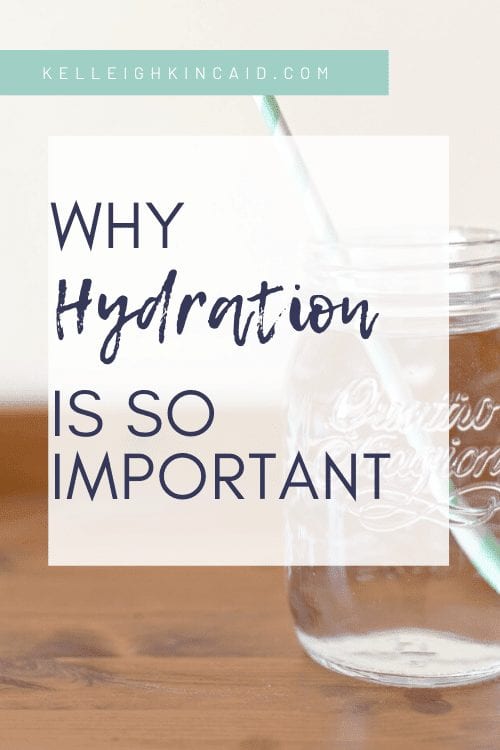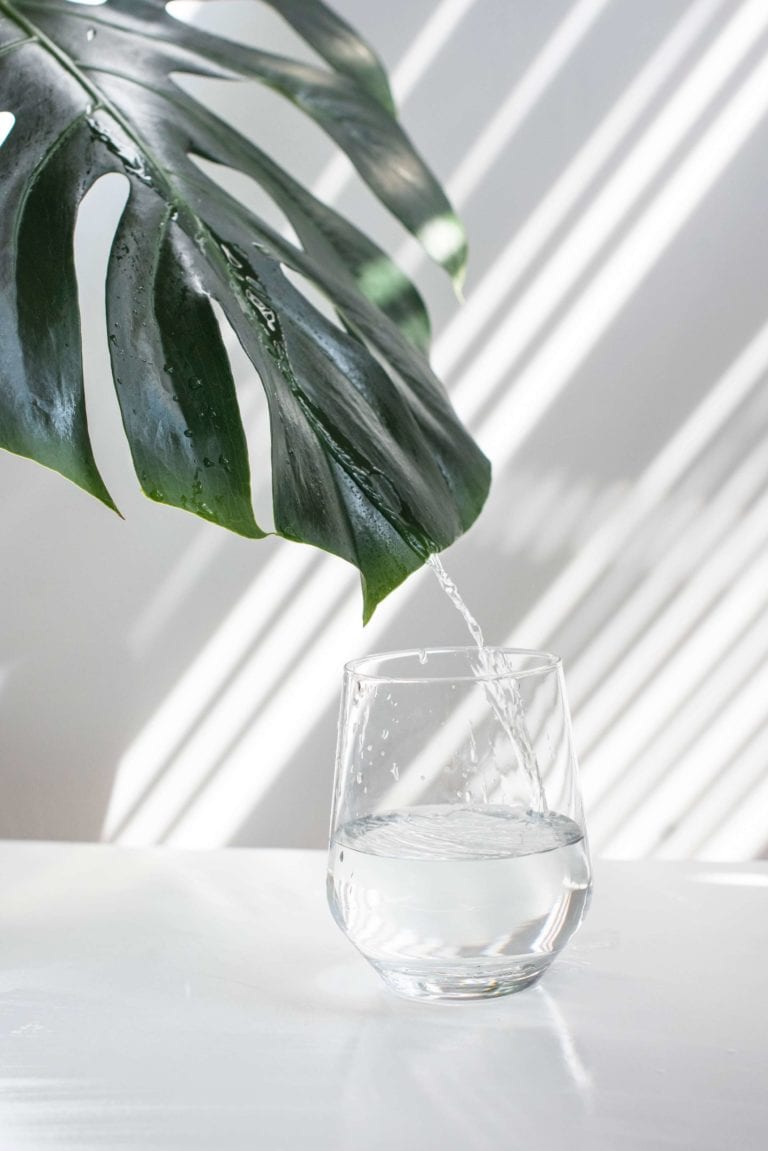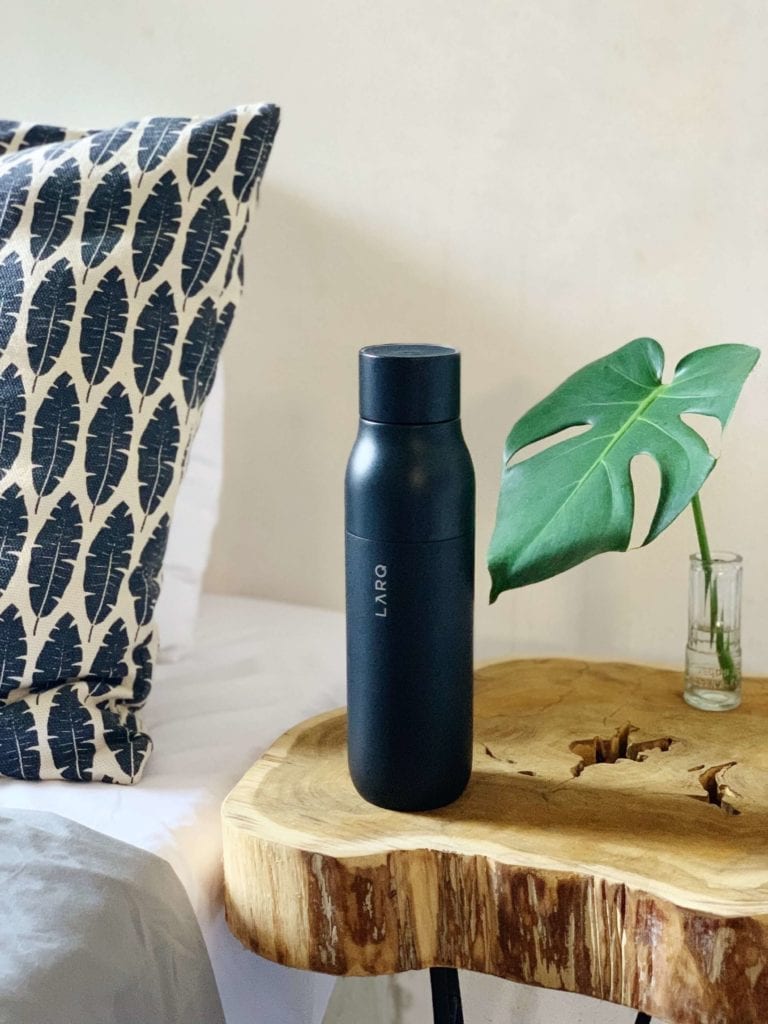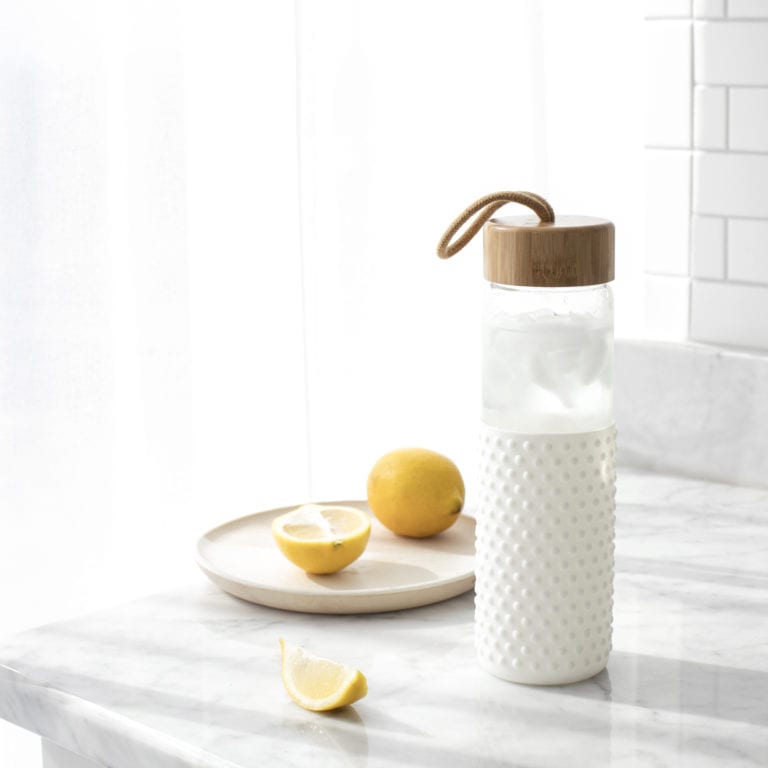Why Hydration Is So Important
Want to know how to stay hydrated and why it is important?
If you want more energy, supercharged brain, glowing skin, and rockstar digestion read on…

WHY HYDRATION IS SO IMPORTANT
Water: The Most Important Nutrient
This is foundational to good health. You could be doing all the other things but if you aren’t hydrated, your health goals will suffer – water is involved in almost every body function: circulation digestion, absorption, and elimination.
We can go weeks without food but only days without water!
And water doesn’t get stored in the body so daily consumption is essential!
Water is the most important nutrient in the body, most of the body is water and most of the volume of cells and body fluid is water.
According to one study, it is estimated hat 75% of Americans are chronically dehydrated! Holy crap! And we have access to clean drinking water here!
That makes me want to drink some water right now!

SIGNS OF DEHYDRATION
Working with clients one of my first questions is, “How much water are you drinking?”. Before jumping ahead to supplements, or advanced testing for chronic conditions I want to address this super important building block that can totally affect our health.
Totally fatigued? Yes, could be adrenal fatigue or low thyroid but it also could be because you are dehydrated!
Brain fog? Sure, it could be candida or heavy metals or a slew of other things but also could just be because you are dehydrated!
See what I mean. This is often overlooked but I can’t stress enough the importance of making sure you are hydrated.
You can be dehydrated for many reasons:
- You are not drinking enough water (read on to find out how much you need)
- You are drinking too many diuretics like coffee, tea, fruit juices, and sodas
- You are over hydrated because you are intaking too much water but not using electrolytes
- You are sweating too much and not replacing your water (ie .sauna or summertime)
- We also lose water every day through the GI tract, lungs, skin, and kidneys
What are the early signs of dehydration?
- Fatigue
- Anxiety
- Depression
- Irritability
- Cramping
- Headaches
- Cravings
Advanced signs:
- Migraines
- Joint pain
- Back pain
- Heartburn
- Constipation
Pain is one of the most common signs of chronic dehydration
Even a water loss of 1-2% in the body can impair cognitive function. So think of water as your brain fuel
Of course if you are staying properly hydrated and having some of the symptoms above there is something else going on. It is best to work 1:1 with a practitioner, like me, to determine the underlying cause.


WHAT WATER DOES IN THE BODY
Obviously you know drinking water is important but here are a few more reasons why:
- Carries nutrients and oxygen into cells
- Provides cellular hydration
- Water helps flush out waste and toxins
- Needed for proper digestion
- Maintain proper electrical charge
- Regulates body temperature
- Lubricates joints
- Helps you stay energized
Hydration is more than just water
But hydration is more than just water! Water depends on electrolytes for proper absorption.
Electrolytes are minerals that are capable of conducting electricity in the presence of water. You are totally electric!
Besides electrical current electrolytes help maintain pH balance in the body, serve as enzyme cofactors and control osmosis of water between fluid compartments in the body (think sodium/potassium), so they bring nutrients in and out of cells
For electrolytes, I use a dash of trace minerals in each glass of water. You can also use some sea salt which is mostly sodium chloride, a little potassium, and magnesium. Different salts will give you different mineral profiles.
So, How Much Water Do You Need To Drink?
Take your body weight in pounds and divide by 2. This is how many ounces you need This is a minimum! So if you weigh 120lbs you would need a minimum of 60oz of water a day.
You need more if it is summertime and hot, if you sweat a lot, and if you drink diuretics.
For every 8 ounces of diuretic you drink, you need to add 12-16oz of water. So for each cup of coffee, you need 2 cups of water. See how easy it can be to get dehydrated?

Ok, So What Kind Of Water Do I Need To Drink?
I say forget bottled water. Plastics can leach into this water very easily, it’s terrible for the environment, and is completely unsustainable.
Don’t drink distilled water because all the minerals have been stripped out (remember we need minerals/or electrolytes for absorption)
Get a good in-home filtration system. I use a Berkey carbon filtration system. This is the best investment I have ever made! They also have fluorite filters but call your city to see if fluoride is added to your water.
I also recommend a filter for your shower because chlorine will absorb super quick into your skin and I can tell you that it’s not good for anyone but especially if you have thyroid issues, chlorine is a toxin to the thyroid. Plus that chlorine will make your hair dull and can cause skin irritation.
Tips for Staying Hydrated:
- Use electrolytes
- Carry a water bottle with you. Pre-measure how many bottles or glasses you need.
- Start eh day off with a big glass of water right when you wake up.
- Try to drink most of your water between meals.
- If you find yourself craving foods, drink a glass of water.
Want more support?
